Recent Blog Posts
Revenge Porn in Wisconsin
 The recent trend of posting revenge porn has proven to be a significant problem for law enforcement officials. Revenge porn is the posting of naked pictures of a former significant other online following a breakup. While some states charged the crime as harassment, many states have passed laws specifically designed to criminalize the posting of revenge porn. Wisconsin has now joined those states. The law, which went into effect in the middle of last year, authorizes heavy penalties for people found to be violating it. However, it also has several exceptions that are important for people to understand.
The recent trend of posting revenge porn has proven to be a significant problem for law enforcement officials. Revenge porn is the posting of naked pictures of a former significant other online following a breakup. While some states charged the crime as harassment, many states have passed laws specifically designed to criminalize the posting of revenge porn. Wisconsin has now joined those states. The law, which went into effect in the middle of last year, authorizes heavy penalties for people found to be violating it. However, it also has several exceptions that are important for people to understand.
The Revenge Porn Law
Wisconsin's revenge porn law is based around the idea of a “private representation.” Private representations are pictures or videos of a person that depict nudity or sexually explicit conduct that the person depicted intended only to be viewed only by the person who took the picture or by someone who the person in the picture gave the representation to. That legalistic definition is basically designed to encompass private, sexually explicit selfies and photos taken by a significant other. The law makes it a crime to post a private representation online or publish it in any form without the consent of the person pictured. Doing so is a Class A misdemeanor with penalties of up to nine months in jail and a fine of up to $10,000.
Understanding Probation in Wisconsin
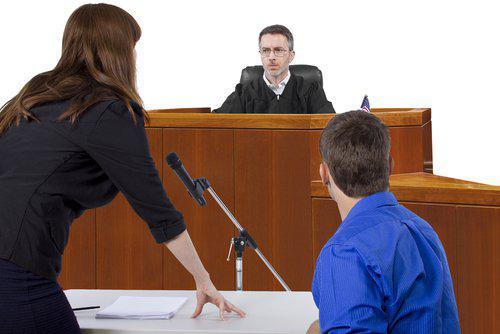 The criminal law has a wide variety of different punishments it can impose for crimes. The ones that people think of most commonly are probably jail sentences and fines. However, these are not the only options. Another common option is criminal probation. Probation is a period of court-authorized supervision of the offender by the Department of Corrections. A person can be placed on probation for a variety of reasons For instance, some courts may choose to put a person on probation instead of sentencing them to prison. Other courts may hand down a prison sentence, but hold off on it to see if the person can successfully complete a period of probation.
The criminal law has a wide variety of different punishments it can impose for crimes. The ones that people think of most commonly are probably jail sentences and fines. However, these are not the only options. Another common option is criminal probation. Probation is a period of court-authorized supervision of the offender by the Department of Corrections. A person can be placed on probation for a variety of reasons For instance, some courts may choose to put a person on probation instead of sentencing them to prison. Other courts may hand down a prison sentence, but hold off on it to see if the person can successfully complete a period of probation.
Probation Basics
At its heart, probation is about supervision. A person on probation is still free. They can live at home, and keep their job. However, they will be subject to a variety of rules. One of the overarching rules is the need to meet with a probation agent, who supervises the person's probation. The frequency of the visits will depend on the specific case, and the location may change as well. These sorts of meetings may take place in the agent's office, at a person's work or school, or even at their home. However, this is not the only rule. People on probation will also likely be required to refrain from using controlled substances and avoid getting charged with another crime. The court may also set specific conditions of probation based on the crime in question. For instance, a person may need to attend drug and alcohol treatment programs, or make restitution to the crime's victim. These rules are important, and violations of them can result in a person being placed on a probation hold, which can have serious consequences.
Accidental Antitrust Violations
 The notion of accidentally committing a crime can be hard for many people to swallow. After all, part of the reason that a society has a criminal justice system is to express moral disapproval for things beyond what a civil lawsuit, like a personal injury suit, can do. Much of that moral culpability stems from people's conscious decision to do the wrong thing. That can make criminal antitrust violations difficult to accept because many people accidentally run afoul of antitrust laws in the course of doing what may seem to them to be an ordinary, acceptable business practice.
The notion of accidentally committing a crime can be hard for many people to swallow. After all, part of the reason that a society has a criminal justice system is to express moral disapproval for things beyond what a civil lawsuit, like a personal injury suit, can do. Much of that moral culpability stems from people's conscious decision to do the wrong thing. That can make criminal antitrust violations difficult to accept because many people accidentally run afoul of antitrust laws in the course of doing what may seem to them to be an ordinary, acceptable business practice.
Antitrust Basics
Antitrust law is the branch of law designed to promote healthy competition among rival businesses. This branch of law has several important statutes, but the most important is the Sherman Antitrust Act. The Act has two major sections for defining antitrust. One section punishes monopolies, companies that have a lock or near-lock on a market, and use that lack of competition inappropriately to drive up prices or keep out competitors. While the exact definition of an “inappropriate” use of market power is a difficult line to draw, this portion of antitrust is difficult to violate accidentally because most monopolists understand the position that they are in.
Understanding Federal Healthcare Fraud
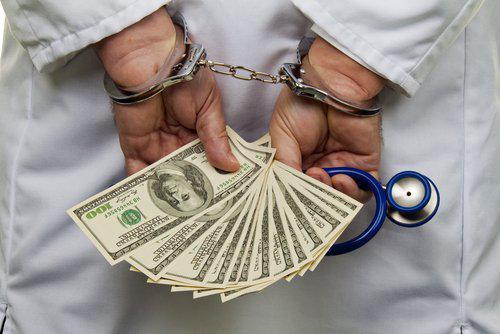 The healthcare sector of the economy is a multi-billion dollar industry that is growing rapidly as a result of scientific advancements and an aging population. On top of this massive growth, the government has laid down complex regulatory and benefits systems over the industry. This combination of large amounts of money and bureaucracy has led some people to develop a new type of crime: healthcare fraud. The general idea behind healthcare fraud is that healthcare providers lie to the government about something in an effort to get paid more than they deserve, but that description does not do justice to the wide array of different things that qualify as healthcare fraud.
The healthcare sector of the economy is a multi-billion dollar industry that is growing rapidly as a result of scientific advancements and an aging population. On top of this massive growth, the government has laid down complex regulatory and benefits systems over the industry. This combination of large amounts of money and bureaucracy has led some people to develop a new type of crime: healthcare fraud. The general idea behind healthcare fraud is that healthcare providers lie to the government about something in an effort to get paid more than they deserve, but that description does not do justice to the wide array of different things that qualify as healthcare fraud.
Types of Healthcare Fraud
The federal statute on healthcare fraud criminalizes a wide variety of conduct. Someone commits healthcare fraud when they either knowingly attempt to “defraud any healthcare benefit program,” or when they lie in order to get money from a healthcare benefit program. With such broad definitions, many things fall under the law's scope.
Types of Theft in Wisconsin
 The law has a reputation for being at times needlessly complex and confusing. It is hard to find somewhere where this reputation is more deserved than the law of theft. At its heart, theft is the act of taking something that belongs to someone else, but the law of theft is much more complicated. It draws distinctions between many different things like theft, robbery and burglary.
The law has a reputation for being at times needlessly complex and confusing. It is hard to find somewhere where this reputation is more deserved than the law of theft. At its heart, theft is the act of taking something that belongs to someone else, but the law of theft is much more complicated. It draws distinctions between many different things like theft, robbery and burglary.
The issue is that some of these distinctions are very sensible, but others are just historical accidents. Some of the distinctions arise because of the law's concern that certain types of theft are more dangerous to citizens or society. Others are the result of how the law of theft developed, as a result of arcane distinctions between different courts in medieval England. Fortunately, most of this latter type of distinction has been consolidated into the crime of theft under Wisconsin law.
Disclosing Exculpatory Evidence: When Prosecutors Have to Help the Defendant
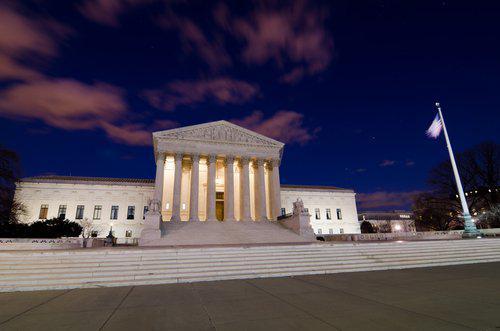 The court system of the United States is often described as “adversarial.” This means that there are two sides in criminal cases - the prosecution and the defense - and that each side is representing the interests of their client. The prosecution works to prove a person's guilt on behalf of the government, and the defense works to prove their client's innocence. The idea is that with two competent sides advocating for their positions, the judge will be able to determine the truth.
The court system of the United States is often described as “adversarial.” This means that there are two sides in criminal cases - the prosecution and the defense - and that each side is representing the interests of their client. The prosecution works to prove a person's guilt on behalf of the government, and the defense works to prove their client's innocence. The idea is that with two competent sides advocating for their positions, the judge will be able to determine the truth.
However, this truth seeking function occasionally merits a break from the adversarial nature of U.S. courts. One important place where this break occurs is when the prosecution discovers exculpatory evidence. Exculpatory evidence is evidence that is beneficial to the defendant in a variety of ways. Under the U.S. Supreme Court case Brady v. Maryland prosecutors have an obligation to disclose that sort of evidence to the other side. A failure to do so can result in a completely new trial in some circumstances.
Attorney-Client Privilege in Wisconsin
 Attorneys act as people's representatives in court, often making tactical decisions when there is no time to consult with their client. Additionally, attorneys work with clients to develop overarching legal strategies. In order to do this job well, attorneys need to have a clear picture of all the facts that their client knows, which means they need complete honesty from their clients. For instance, a criminal defense attorney will not be able to develop a strong trial strategy if their client lies about where they were when the crime was committed. In order to foster this complete honesty, Wisconsin law provides clients with attorney-client privilege. This privilege protects clients from being forced to testify about conversations with their attorney, and it affords the same protection for lawyers.
Attorneys act as people's representatives in court, often making tactical decisions when there is no time to consult with their client. Additionally, attorneys work with clients to develop overarching legal strategies. In order to do this job well, attorneys need to have a clear picture of all the facts that their client knows, which means they need complete honesty from their clients. For instance, a criminal defense attorney will not be able to develop a strong trial strategy if their client lies about where they were when the crime was committed. In order to foster this complete honesty, Wisconsin law provides clients with attorney-client privilege. This privilege protects clients from being forced to testify about conversations with their attorney, and it affords the same protection for lawyers.
The Writ of Habeas Corpus
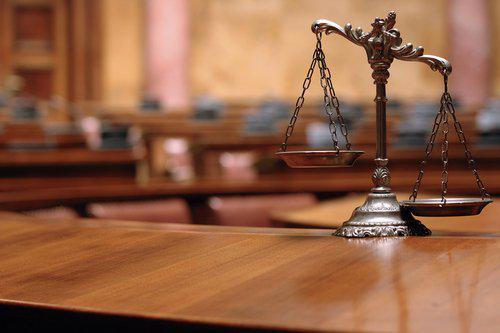 The law attempts to provide a variety of protections to people who have been accused of a crime. Before and during a trial, the Constitution conveys numerous rights that are designed to prevent abuses on the part of the criminal justice system. After the trial, a losing defendant is allowed to appeal their case to a higher court if they think the trial court made a mistake. Yet sometimes even with all these protections, courts still make mistakes. When that happens, people may be eligible for a writ of habeas corpus, also known as a habeas petition or simply the Great Writ.
The law attempts to provide a variety of protections to people who have been accused of a crime. Before and during a trial, the Constitution conveys numerous rights that are designed to prevent abuses on the part of the criminal justice system. After the trial, a losing defendant is allowed to appeal their case to a higher court if they think the trial court made a mistake. Yet sometimes even with all these protections, courts still make mistakes. When that happens, people may be eligible for a writ of habeas corpus, also known as a habeas petition or simply the Great Writ.
Understanding the Writ
Habeas corpus is an old writ that has been around since the drafting of the Constitution, but is now codified in 28 U.S.C § 2254. The idea behind the writ is that it provides a check on the government, preventing someone from being held without good cause. Essentially, it lets people being held by the government go to court to argue that they are being held illegally.
U.S. Settles Fake Facebook Profile Case
 The U.S. Drug Enforcement Agency recently settled a lawsuit pending against it, Arquiett v. U.S., paying $134,000 to a woman whose photographs the DEA had used to create a fake Facebook profile to carry out drug stings. The DEA acquired the photographs off the woman's cell phone after she was arrested on drug charges. The settlement did not require the government to admit to any wrongdoing, and it prevents the case from going to trial. However, it may still provide an important guidepost for how much respect the federal government should have for people's privacy when it is enforcing the laws, since the Justice Department has now said that it is “mak[ing] clear the necessity of protecting the privacy and safety of third parties in every aspect of our criminal investigations.”
The U.S. Drug Enforcement Agency recently settled a lawsuit pending against it, Arquiett v. U.S., paying $134,000 to a woman whose photographs the DEA had used to create a fake Facebook profile to carry out drug stings. The DEA acquired the photographs off the woman's cell phone after she was arrested on drug charges. The settlement did not require the government to admit to any wrongdoing, and it prevents the case from going to trial. However, it may still provide an important guidepost for how much respect the federal government should have for people's privacy when it is enforcing the laws, since the Justice Department has now said that it is “mak[ing] clear the necessity of protecting the privacy and safety of third parties in every aspect of our criminal investigations.”
Wisconsin Judge Strikes Down Campaign Finance Law
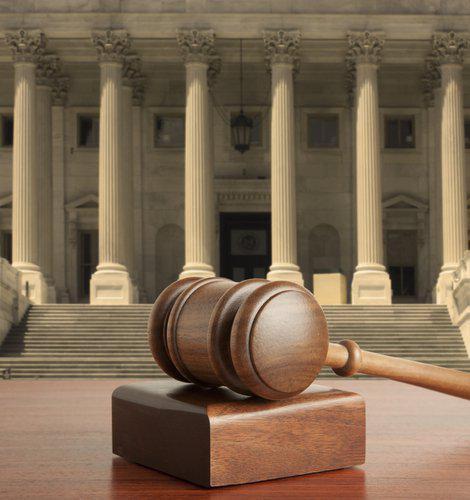 The law of campaign finance has been in a state of flux over the past few years. The U.S. Supreme Court issued landmark rulings in cases like Citizens United v. FEC and McCutcheon v. FEC. Wisconsin in particular has seen a variety of campaign finance-related rulings stemming from a probe into Governor Walker's recall election. Now another case may have important implications for political action committees and other organizations who fall under the regulations of campaign finance law. The decision in Wisconsin Right to Life v. Barland removes numerous restrictions on campaign spending and other procedural requirements for certain corporations.
The law of campaign finance has been in a state of flux over the past few years. The U.S. Supreme Court issued landmark rulings in cases like Citizens United v. FEC and McCutcheon v. FEC. Wisconsin in particular has seen a variety of campaign finance-related rulings stemming from a probe into Governor Walker's recall election. Now another case may have important implications for political action committees and other organizations who fall under the regulations of campaign finance law. The decision in Wisconsin Right to Life v. Barland removes numerous restrictions on campaign spending and other procedural requirements for certain corporations.
The Law in Question
The suit in question was brought by a pair of related organizations, Wisconsin Right to Life Inc (The Corporation), and The Wisconsin Right to Life PAC (The PAC). The lawsuit challenged a plethora of different campaign finance restrictions in Wisconsin as unconstitutional. Three of the most important rules that were challenged were:







